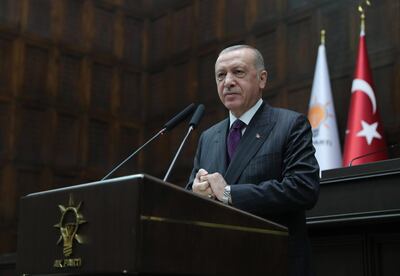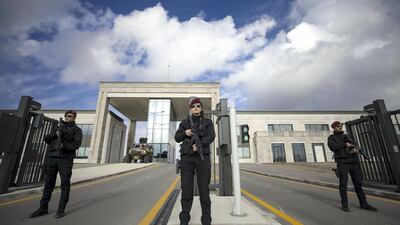A defector claiming to be a member of Turkey’s intelligence network told Austrian police he was ordered to carry out a hit on a Kurdish-Austrian politician and of his involvement in other plots on Ankara’s behalf.
The man, identifying himself as Feyyaz Ozturk, a retired member of Turkey’s MIT intelligence agency, turned himself in to Austrian police in September, telling authorities he had been ordered to attack Aygul Berivan Aslan, a vocal critic of Turkish President Recep Erdogan.
Mr Ozturk also said he was forced to give false evidence that was used to convict Metin Topuz, an employee of the US consulate in Istanbul, who was sentenced to eight years in prison for aiding an armed terrorist group.
His claims, if substantiated, would draw back the curtain not only on Ankara’s extensive efforts to silence critics abroad but also to e able to pressurise allies such as the US through its espionage apparatus.
In his confession, detailed in a police report given to The New York Times, Mr Ozturk outlined how, after retiring from a long career in the MIT, he was asked to carry out the attack on the former Austrian legislator of Kurdish descent.

Over four hours of questioning by police, Mr Ozturk said he had first been contacted to carry out the attack in 2018 by a Turkish prosecutor in Istanbul. He is currently being detained by Austrian prosecutors under investigation of working for a foreign military intelligence service.
He was impeded in his mission by the coronavirus lockdown. Unable to travel to Vienna in March, Mr Ozturk, who has an Italian passport, was held up in Rimini. After breaking his leg in an accident he told his handlers he was unable to carry out the hit.
In August, he travelled to meet a contact in a Turkish coffee shop in Belgrade where he was told Ms Aslan need only be injured, not necessarily killed.
The details Mr Ozturk gave to Austrian authorities of the plot against Mr Topuz appears to completely undermine the prosecutors’ case against the US consulate employee, one of several US employees and US citizens being held by Ankara apparently as leverage against Washington.
The suspected Turkish spy told Austrian police he had worked with Mr Topuz in the US Drug Enforcement Agency, where they were both translators until 2004. American officials confirmed this detail.
Mr Ozturk explained how, in September 2017, he was coerced into signing a witness statement against the US government employee under threat of being sent to prison with him, and claimed he signed a blank sheet of paper.
“They slotted me in as a witness and put an empty piece of paper in front of me, which I signed,” Mr Ozturk said. “Otherwise I would go to prison with Metin Topuz.
“In Turkey, they always do it that way.”
Mr Ozturk told Austrian police that he had qualms about carrying out the attack on the politician, which is why he turned himself in. “I am no contract killer,” he said.
The Austrian government, which has long voiced misgivings over Turkish intelligence operations in the country, declined to comment in detail on the investigation. However, Karl Nehammer, the Austrian interior minister, said the allegations were being taken seriously.
Ankara dismissed the claims. "Mr Ozturk was never affiliated with, nor did he ever act on behalf of, the Turkish intelligence," a senior official said in an emailed message to The New York Times.


